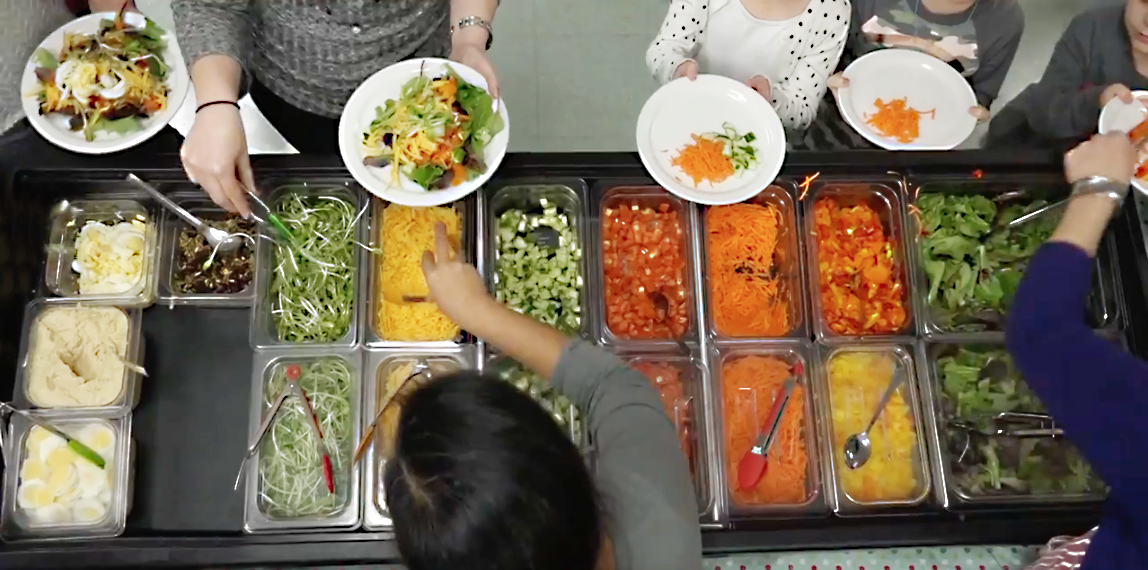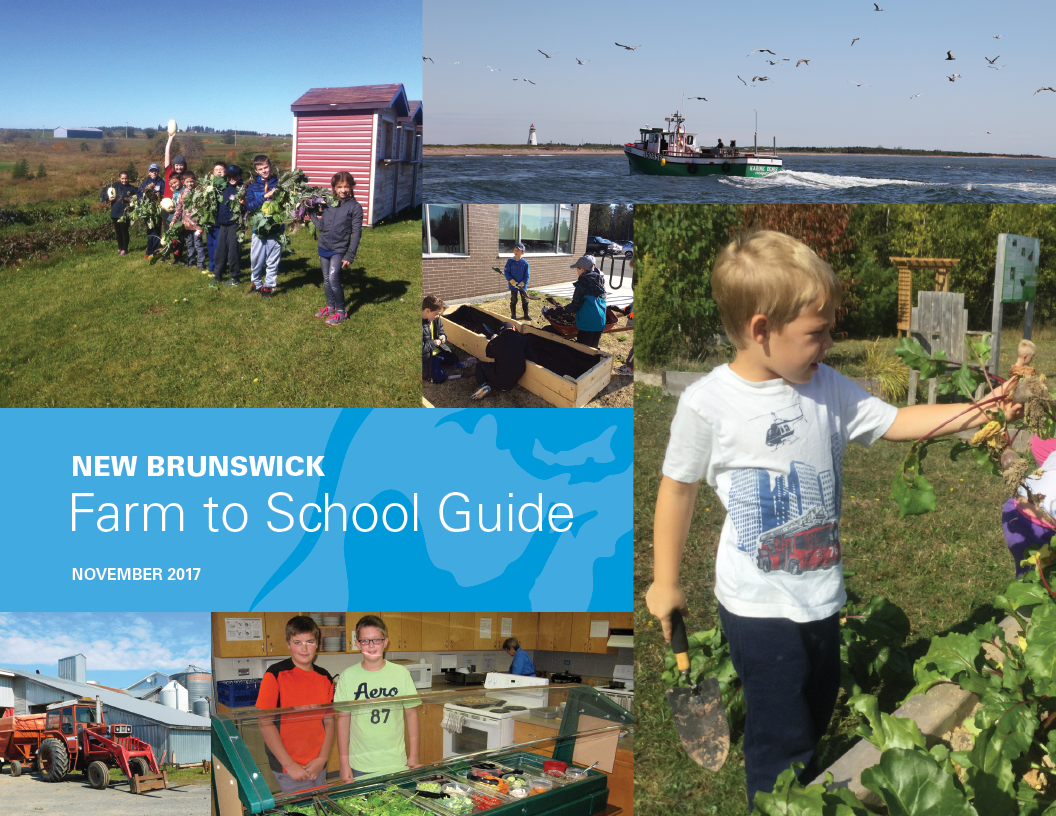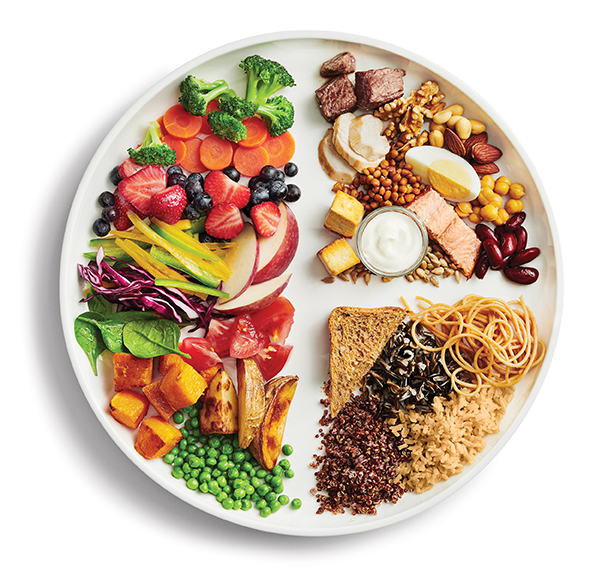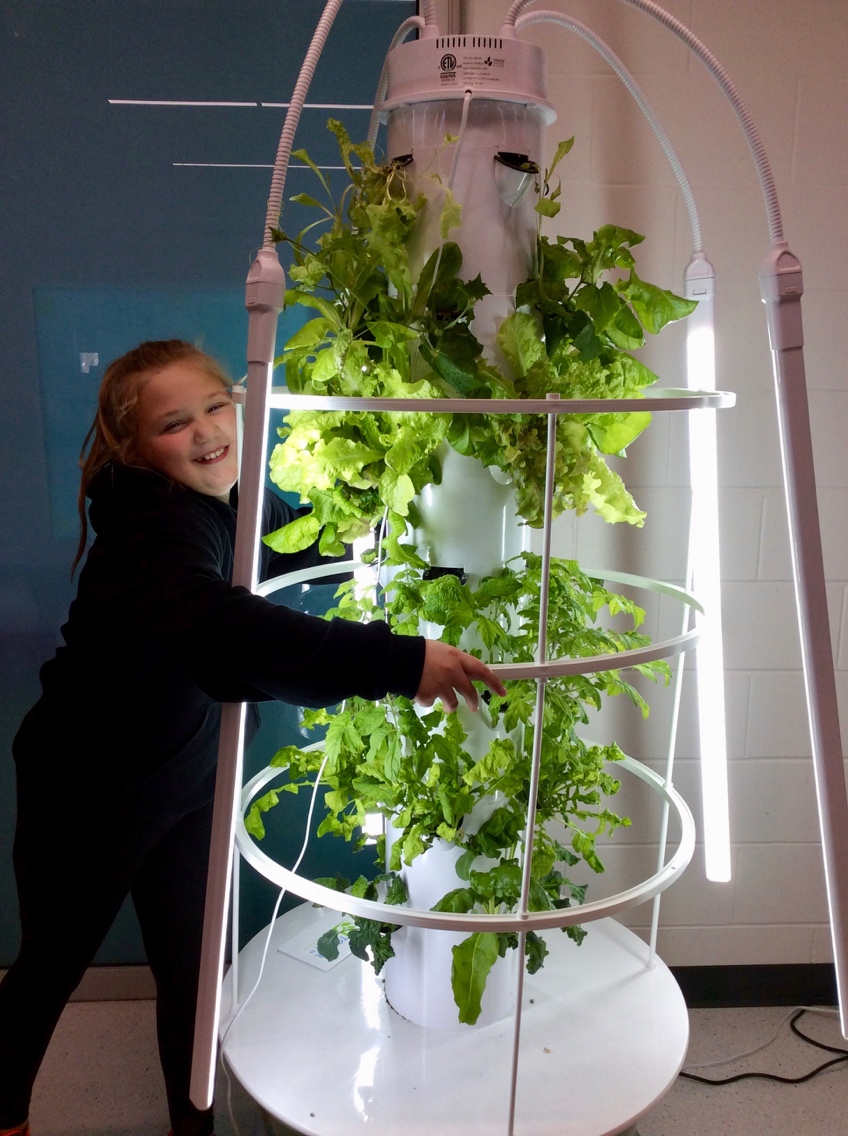 Photo: Huband Park Elementary School, Courtenay, BC
Photo: Huband Park Elementary School, Courtenay, BC
As a meal service model the salad bar is flexible. It can be adapted to fit and reflect each school community’s needs and it has been shown to work well in a variety of different school settings.
** See our Glossary to understand what we mean when we use terms such as “healthy”, “local” and “sustainably produced”.
Salad Bars look different in every school. They reflect the local geography, diverse cultures, traditions and preferences of their school communities…and sometimes they may not include salad at all! The important thing to remember is that they should give students a choice to build their own bowls and create their own plates from a variety of healthy, local foods. Below are a few examples of how schools get creative with their salad bar:

Small is beautiful…and attainable!
When starting a Salad Bar service, avoid proposing something large or complex to start. Instead, begin with a thoughtful plan that builds on your school’s strengths. From there, set progressive goals to help grow the initiative as you gain experience and feedback from your school community.
For a comprehensive guide to building a Farm to School Salad Bar, check out the New Brunswick Farm to School Guide (see page 23) and the Quebec Farm to School Resources Guide
 Farm to School Salad Bars should:
Farm to School Salad Bars should:

With an emphasis on variety and choice, Salad Bars provide flexibility and room to be creative. The possibilities are endless. Here are ideas to create excitement and fuel student curiosity:

Access to local food throughout the school year can be a challenge in most regions in Canada. The important thing is to set local food procurement targets and increase them year after year as your program becomes more established. Below are some ideas to incorporate local food outside the growing season, help students learn about where their food comes from, and enable your school community to preserve the growing season:
Since its launch in 2016, the Farm to School Canada Digs In! Initiative has enabled more than 53,000 students in 133 schools in 9 provinces and 1 territory to grow, prepare and eat healthy, local, sustainable foods at a school salad bar. Here’s a taste of what recent salad bar grantees have shared:
“Students are provided with healthy, fresh, local food on a regular basis. This has become something students are excited about and look forward to. Healthy food is becoming part of our school culture.”
“Students are excited about the free salad bar and load up their plates, they are often heard speaking positively about it in the morning in anticipation… and there are line-ups!”
“Students are involved with planting, harvesting and preparing many of the vegetables used in our salad bar. It has been a powerful experience for them to be involved with all these aspects of food production.”
“Students try NEW foods that they would not have tried a year ago. As they get more comfortable with choosing healthy foods they get more experimental with their out of comfort food experiences.”
>> Les élèves ont très hâte au lancement du bar à salade. <<
>> Beaucoup de jeunes adorent ce service. <<
>> Des gens de la communauté s’engagent à faire équipe avec nous, ce qui est toujours positif. <<
Multilingual WordPress with WPML